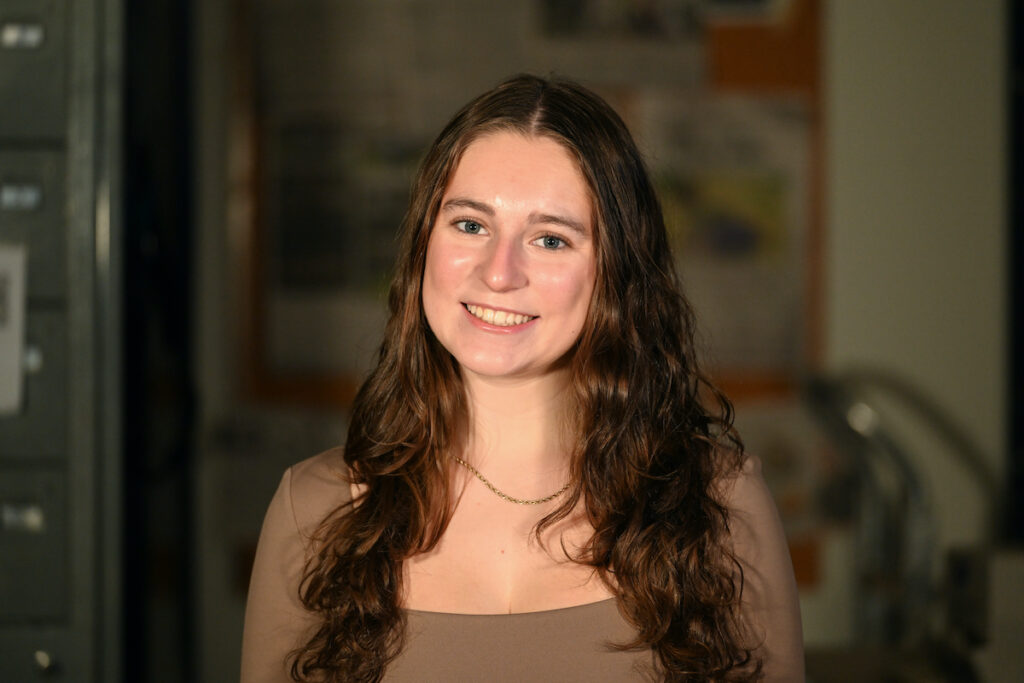
Wilmette makes composting easier for residents with new drop-off program
One man’s trash is the environment’s treasure.
That’s the foundation of Wilmette’s expanded composting program, an collaboration between the Village of Wilmette and the Wilmette Park District that launched Wednesday, June 30, and encourages locals to drop off their scraps.
Residents can bring their compost to five sites around town free of charge. Each site has two 32-gallon containers to collect compostable food waste. The bins will be swapped out weekly by WasteNot Compost, which the Village has contracted for this pilot program through the end of December.
The compost sites are: Thornwood Park at 2361 Kenilworth Ave., the CTA Linden lot at 349 Linden Ave, the Poplar lot at Poplar Drive and Oakwood Avenue, Centennial Recreation Complex at 2300 Old Glenview Road and Public Works headquarters at 711 Laramie Ave.
Following the contract’s expiration, the Village will assess the program’s future, said Lucy Mellen, the sustainability coordinator for the Village and park district.
“We’re excited to have these locations throughout the community so we can find out what areas people are really gravitating towards to drop off their compost,” Mellen said. “And if some areas are maybe more convenient for others based on walking or driving or riding your bike.”
The pilot program has been discussed at Environmental and Energy Commission meetings and was mentioned in Wilmette’s e-newsletter Friday, July 25. Mellen said the program’s launch will also be announced in the Friday, Aug. 1 e-newsletter.
The idea for the program arose both out of residential inquiries and inspiration from the city of Skokie, Mellen said. Two years ago, Skokie introduced a drop-off food waste program and, according to city documents, saw their compost numbers more than double after implementation, with the increase continuing in 2024.
Wilmette already offers a free curbside composting program, running from the first full week in April through the last full week in November, and a winter paid program ($30 per month); however, Mellen said that for a number of reasons people do not participate in curbside pickup.
Mellen said individuals living in an apartment or condo might not have access to curbside bins, other individuals may not feel like they have enough food waste to have a curbside bin and still others may not have the space to store another bin.
“The overall goal of the program is that we get more people composting,” Mellen said. “The biggest thing I could ask is that we have people that find this to be an easier way to compost.”
Wilmette will continue to offer its curbside collection alongside the new drop-off program.
Why compost
Composting, whether drop-off or curbside, has significant benefits for the environment.
According to the Environmental Protection Agency, 24% of municipal waste sent to landfills is food waste, which produces methane — a potent greenhouse gas — when it sits in a landfill. Composting diverts food waste from landfills, therefore reducing methane, Mellen said. It also creates a beneficial soil amendment.
Composting may not be intuitive for those who haven’t done it before, Mellen said, so the Village is taking steps to educate residents. Each drop-off site will have signage with advice about composting. Information is communicated through the program’s website, newsletters and social media.
“We’re really thrilled to be offering this, and really excited,” Mellen said. “The number one thing with composting is really just education. … There’s definitely a learning curve, but once you do it one time, or once you do it for a month, it becomes really second nature.”
- Accepted items: meat, fish, bones, coffee filters, dairy, baked goods, pizza boxes
- Unaccepted items: plastic, styrofoam, produce stickers, glass, metal, grease, pet waste
As the pilot program progresses, WasteNot Compost will give the Village data monthly regarding the amount of compost at each site. Additionally, Mellen said the Village hopes to roll out a survey in the latter months of the program to assess residential feedback.
“If expansion is something that the trial period or the pilot period alludes to, it’s not something that we’re opposed to at all,” Mellen said. “I think it’ll be potentially an expansion and a change, because there might be some locations that are more popular that require expansion (and) there might be some locations that are less favorable.”
The Record is a nonprofit, nonpartisan community newsroom that relies on reader support to fuel its independent local journalism.
Become a member of The Record to fund responsible news coverage for your community.
Already a member? You can make a tax-deductible donation at any time.

Laura Horne
Laura Horne is a rising junior at Northwestern University pursuing majors in Journalism and Psychology and a minor in Legal Studies. Originally from Charlotte, North Carolina, she reports for The Daily Northwestern and has edited for North by Northwestern magazine. She enjoys discovering new music and new coffee shops.


